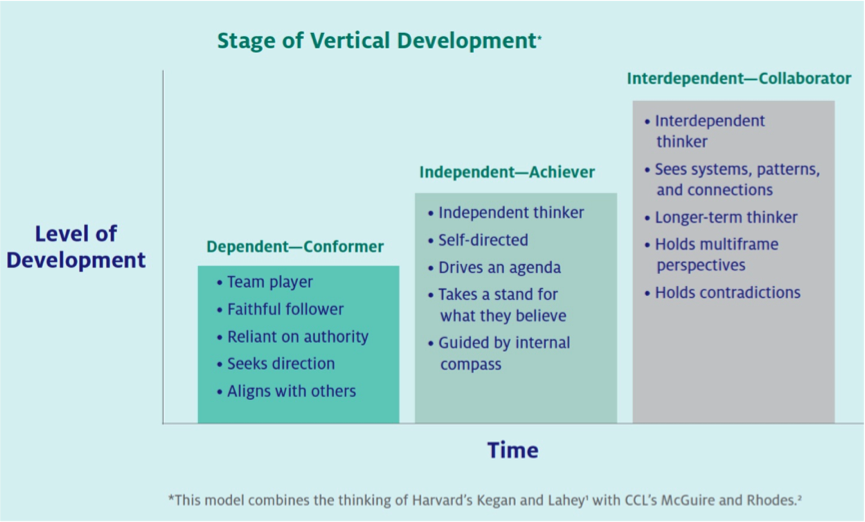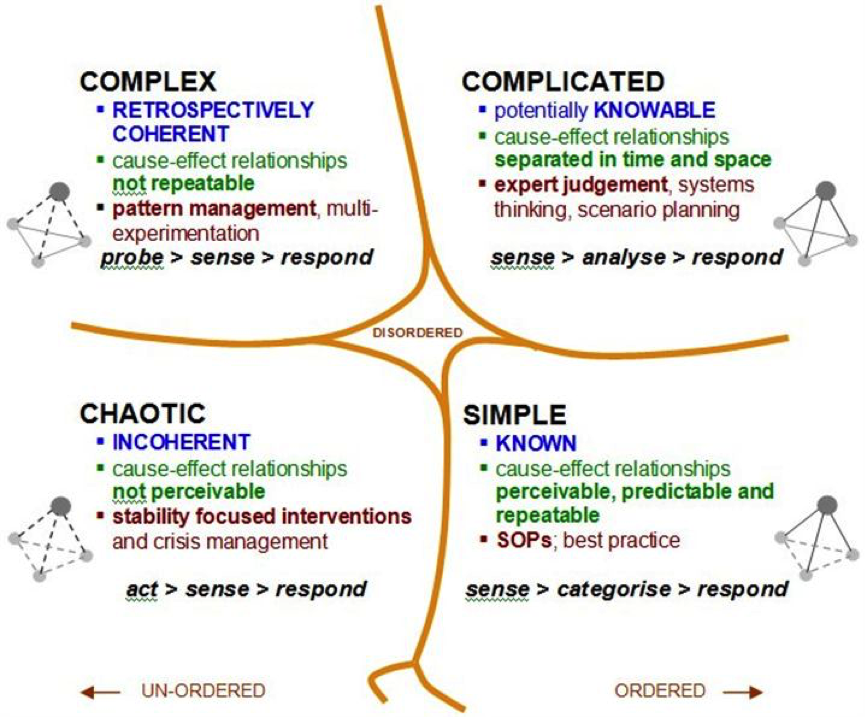Promoting to succeed – why it’s key to develop in leadership transitions
Leading is more than a skill; it’s a way of thinking and being. When we promote people (leadership transitions) to operate at a more senior level one of the biggest requirements placed on them is to develop thinking for what they come to understand of themselves, their organisation and the world in which they operate.
Some leaders have a palpable sense of awareness and perception. And it’s these leaders who are the most effective in complex and challenging environments and who can bring people with them. I believe 58% of leaders fail in their first 18 months (McKinsey) because their thinking has not been developed and they do not recognise what leads them; when they are operating in multiplicity they are out of position.
Organisations challenge leaders
Organisations need leadership to create cohesion and unity, which is the polar opposite of dominance and control. Organisations are systems that respond in relationship to themselves as well as markets, environmental and cultural forces. The impact is unconscious but it creates a culture of conditioned responses that have the potential to generate and magnify conflict and disrupt performance. People are indoctrinated into it because ultimately culture is definitive and people that stand out and do not conform are at risk. Leaders need to develop the capability to see and interpret the system to create organisations that are effective.
But what does this have to do with leadership transitions?
When you have leaders that have grown from the expert; high performing talent pools, no doubt you have highly skilled and capable people. However, individuals need to develop a broad understanding across the organisational functions, its idiosyncrasies. To have managed the pressure of paradoxes and understand themselves in these environments. In reality, many of the behaviours that have made experts successful are counterintuitive to the leadership of organisations and need to be reprogrammed in transition.
How do you teach someone affected by culture to influence culture?
Organisations must think about the development of their leaders and their future talent in a different way. Leadership development is not simply skill development, it goes to the core of how people think, perceive and behave. This shift is what’s known as vertical development and this is where real leadership transitions happen.
‘Vertical Development refers to advancement in a person’s thinking capability. The outcome of vertical stage development is the ability to think in more complex, systemic, strategic, and interdependent ways. It is about how you think…’ (CCL)
Historically people development looked at horizontal development – skills, knowledge and behaviour but failed to tackle thinking and perception. Vertical development’s focus and approach are to increases the impact and effectiveness of thinking. It is this form of development that enables leaders to be effective within complexity. The CCL framework shows the shifts that vertical development encompasses an emerging perspective.

Why vertical development is so important.
When you consider how organisations will challenge leaders, it shows there is a deeper level of understanding required. Many people can put labels on what is wrong, even where it is wrong. Leaders with higher levels of development will be able to see how it is wrong, the dynamics and paradoxes at play that have led a system to behave in a certain way. When we promote people into leadership without expanding their thinking, we are effectively creating traps for them. They are left to respond blindly, without being able to see the deeper interconnected contexts at play.
This is ok in transactional roles, where there is clarity over cause and effect and where you can understand with some level of expertise what is at play. However, organisations are increasingly being impacted by multiple factors. We can see from Snowden’s Cynefin Framework (below) the impact complexity needs to have on our thinking and approach. When you are thinking about the environments leaders are being required to operate within it’s clear they need higher levels of vertical development to be effective.

The people dynamic
Alongside and integrated with the complexity that you see in organisations is how people interrelate and respond to each other. People operating every day within the organisational system, its history and leadership will determine whether people harmonise and support, conflict and fight or move away and distance themselves. These are responses to situations, leadership and pressures that have been developed over time, below the consciousness of the organisation. What this means effectively is that people and systems can respond in ways that are counter-intuitive.
When we are trying to impact organisations the people within it need to be involved in moving it forward. Leaders need to be able to bring people together, create dialogue and dive into the stories to enable both individual and common narratives to be shared. Building understanding to be able to see potential areas to probe, experiment and leverage what works and move away from and resolve what does not.
For leaders this means
Leaders must be able to bring together the appropriate people and facilitate experts and disciplines to come together and create dialogue. Being able to see and sense the relationships at play, the dynamics and politics – shining a light and brokering the competing demands and paradoxes. They need to be able to hold space in discomfort and be both challenging and vulnerable, to enable the process and build relationship and movement.
What this means for organisations
Organisations need to have people that can work across the spectrum of complexity and with each other’s thinking. It is now widely recognised that complexity in organisations and markets is increasing, which means that the development of leadership needs to account of this. The overriding research shows that to be effective in this domain, development must impact thinking and broaden understanding to see multiple interactions.
Organisations need to create environments and opportunities to tell stories, to understand the time that the organisation is operating in. What are the causes of the stories and the situations that come up and what are the capabilities required to address these? Ensuring people to be ready for leadership means creating experiences and opportunities throughout the career journey is essential.
A world of ambiguity and complexity means the organisations need to build the ability to be with and work with ‘not knowing’. Traditionally ‘not knowing’ creates a place of discomfort and a need to fix, however it also creates a host of opportunity for collective discovery. Leaders in this space need to be able to hold the discomfort and facilitate exploration.
…and for leadership transitions
Transitions create opportunities to realise potential; they are a hugely fertile developmental grounds. An organisation that understands its challenges can take a strategic overview for career journeys. As can individuals in commanding their own development opportunity.
When people move into a role that places broader requirements on them, their development must enable them to stretch their capacity. To perceive issues, working through and with people to create success. By vertically developing people we provide greater opportunity for them to engage their thinking and work with complexity and ambiguity.
Leadership transitions are a particularly fruitful time, vertical development is fast-tracked under pressure. The heat of these situations means that leaders who are seeking, open to development and change have a great growth opportunity. Therefore development opportunities focused in transition are effective in expanding and broadening perspective and create the opportunity to digest and reflect for vertical growth.
Our Landings to Legacy programme is focused on supporting leadership transitions to be successful. We also offer transition coaching programmes to help leaders engage and become effective. This programme supports you in your development to achieve great success in your leadership journey. Email enquiries@vantagepeople.uk to arrange a consultation.


